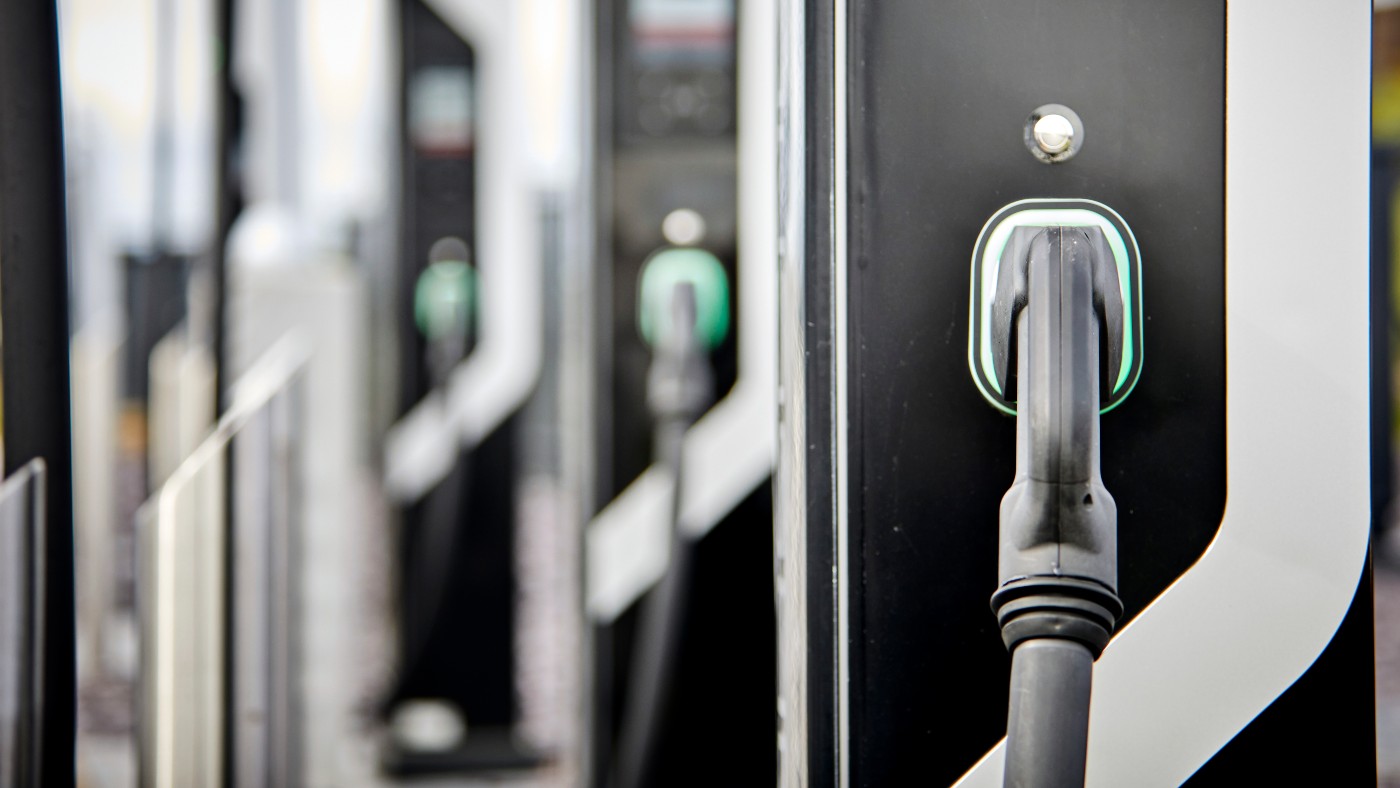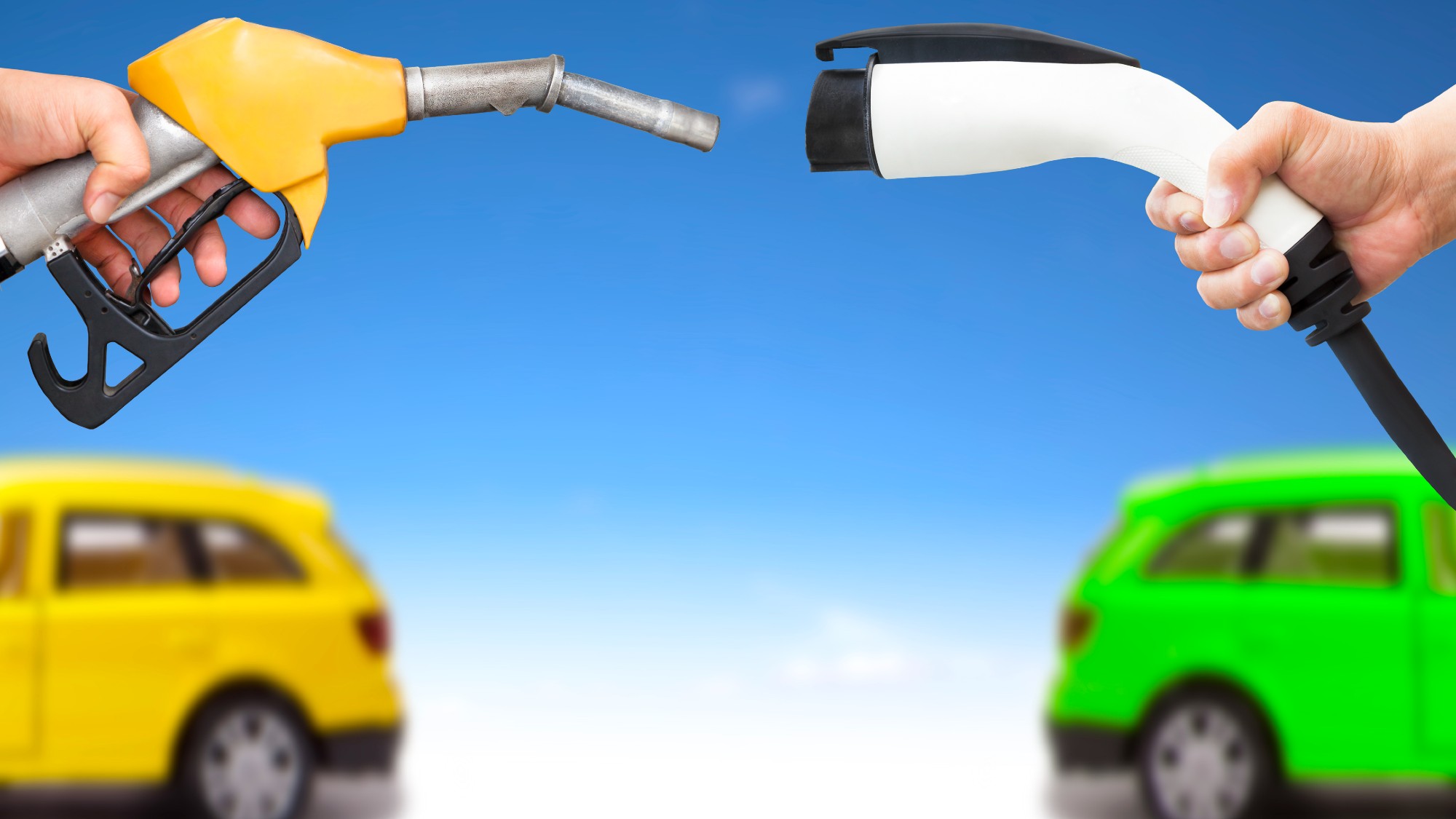How much does it cost to charge an electric car?
Is it worth going green behind the wheel?

A free daily email with the biggest news stories of the day – and the best features from TheWeek.com
You are now subscribed
Your newsletter sign-up was successful
Increasing numbers of drivers are opting to go electric for their next car, but how should they factor in charging costs?
Drivers continued to switch to electric cars during May 2023, with a further 24,513 battery-powered vehicles hitting the road during the month, according to the Society of Motor Manufacturers. That’s up 58.7% annually and battery-powered electric vehicles (BEVs) now command 16.9% of market share.
With petrol or diesel cars, drivers only have the forecourt fuel price to consider. But there are a lot of variables when it comes to the cost of charging an electric vehicle (EV) or a plug-in hybrid.
The Week
Escape your echo chamber. Get the facts behind the news, plus analysis from multiple perspectives.

Sign up for The Week's Free Newsletters
From our morning news briefing to a weekly Good News Newsletter, get the best of The Week delivered directly to your inbox.
From our morning news briefing to a weekly Good News Newsletter, get the best of The Week delivered directly to your inbox.
Where to charge an electric car
“Filling up with fuel is easy,” explained the RAC, but charging an electric car “can be a little more complicated. The different connectors, compatibility, and variable rates of charge may make it seem like a complex job.”
Your EV should come with a standard charging cable that you can plug into any wall socket. But that is “far from the most efficient way” to charge your car, said Motorway, and can take up to 24 hours. A home or “wallbox” charger that taps into your electricity supply is the more effective option.
The “ballpark” figure for installing a standard 7kW home fast charger will probably be between £500 and £1,000, said Carwow, and the charger itself will cost about the same. Many companies bundle the two costs.
Some employers are providing charging stations, which can make electric cars more viable for commuters who live a distance away from their location of work, said the RAC. They could also offer discounted or free charging.
A free daily email with the biggest news stories of the day – and the best features from TheWeek.com
If your work doesn’t have an EV charge point installed, it could take advantage of the Government’s Workplace Charging Scheme (WCS), which helps fund chargers.
There is also a “rapidly expanding” network of public charge points, said the Energy Saving Trust. These are located in places such as supermarket and public car parks operated by brands including Pod Point and Ecotricity. They are vital for EV drivers who lack off-street parking or workplace charging, and can be useful for other EV drivers, “who want to ‘top-up’ while away from home or are undertaking longer journeys”.
You can search for charge points on a range of apps and websites including Zap-Map, PlugShare and Open Charge Map.
The cheapest way to charge an electric car
The cost of charging your car at home will largely depend on the energy tariff you are on and the size of your car’s battery.
A wallbox is a one-off expense, explained Carwow, but your domestic energy prices will have a far greater bearing on how much it costs you to charge an EV at home.
The cost of charging an EV from 0-100% is calculated by multiplying the size of a car’s battery by the price per kilowatt hour (kWh) you pay for your electricity. So an electric car with a 100kWh battery will cost £30 to recharge if your energy supplier charges 30p per kWh of electricity.
It isn’t always that simple, though, warned Carwow, as people don’t let their cars drop to 0%, and car makers recommend charging batteries to 80% or 90% to preserve battery health. Another way of looking at things is to work out how far your car travels on 1 kWh. “A car that does 4 miles per kWh will cost 7.5 pence per mile in electricity, assuming the 30p per kWh cost, while one that does 2.5 will cost 12p per mile,” Carwow said.
Some energy companies may offer dedicated tariffs for electric car drivers where it is cheaper to charge at certain times, such as overnight.
Alternatively, when using a public network – usually accessed with an app – you may need to pay a standard connection fee plus the amount of electricity consumed multiplied by the charge point supplier’s or network’s electricity tariff.
Being a member of a charging network could “give you access to cheaper rates”, added the Energy Saving Trust, and save you money “if you use the same network regularly”.
Standard at-home charge points are often the cheapest to use and are suitable when vehicles are parked for hours during the working day or overnight, the website added. In contrast, rapid charge points found at service stations or car parks can often recharge your vehicle to 80% in around 30 minutes but “can be the most expensive to use”.
You could also charge while you shop. Several supermarkets, including Aldi, select Asda stores and Sainsbury’s, offer free EV charging. The rest charge for the service, explained Electric Car Guide, with rates varying from 40p to 59p per kWh.
“Most EV drivers are best off avoiding public rapid chargers where possible and relying on cheaper home charges or free destination chargers,” added Auto Express. “But if you’re likely to be frequenting one particular chargepoint provider and doing a lot of miles, then a paid subscription could well be worth it.”
Is charging cheaper than using petrol or diesel?
Electric car drivers currently pay no vehicle excise duty. EVs offer lower maintenance costs and a “superior driving experience”, said EVBox, as well as instant torque and smooth handling. Plus, “the convenience to charge wherever you park is a perk you can get used to faster than your average charging session”.
But rising energy prices means running an EV isn’t as cheap as it used to be compared with petrol and diesel.
Joe Holding compared the cost of an electric and petrol Kia Niro for Top Gear and found the EV version was just 2p per mile cheaper to drive. The sharp increase in energy costs has “wiped out a big chunk of the saving EV drivers were making on their running costs”, he said, “and there’s no telling when things will settle down again”.
It looks like energy prices – whether that’s for electricity or fuel at the pumps – will continue to fluctuate for the next year or two, he added, “so sometimes the savings from going electric will be big and other times they won’t be. After then we’ll hopefully have a better idea of the long-term trend.”
Marc Shoffman is an award-winning freelance journalist, specialising in business, property and personal finance. He has a master’s degree in financial journalism from City University and has previously written for FT Adviser, This Is Money, the Mail on Sunday and MoneyWeek.
Sign up to The Week’s personal finance newsletter to get expert advice and tips sent to your inbox every Thursday
Marc Shoffman is an NCTJ-qualified award-winning freelance journalist, specialising in business, property and personal finance. He has a BA in multimedia journalism from Bournemouth University and a master’s in financial journalism from City University, London. His career began at FT Business trade publication Financial Adviser, during the 2008 banking crash. In 2013, he moved to MailOnline’s personal finance section This is Money, where he covered topics ranging from mortgages and pensions to investments and even a bit of Bitcoin. Since going freelance in 2016, his work has appeared in MoneyWeek, The Times, The Mail on Sunday and on the i news site.
-
 The Olympic timekeepers keeping the Games on track
The Olympic timekeepers keeping the Games on trackUnder the Radar Swiss watchmaking giant Omega has been at the finish line of every Olympic Games for nearly 100 years
-
 Will increasing tensions with Iran boil over into war?
Will increasing tensions with Iran boil over into war?Today’s Big Question President Donald Trump has recently been threatening the country
-
 Corruption: The spy sheikh and the president
Corruption: The spy sheikh and the presidentFeature Trump is at the center of another scandal
-
 EV or gas car: what's more cost-effective to own in the long run?
EV or gas car: what's more cost-effective to own in the long run?The explainer Will a steeper sticker price be worth skipping all those trips to the gas pump?
-
 What Biden's IRA means for EV tax credits: 2024 updates
What Biden's IRA means for EV tax credits: 2024 updatesThe Explainer Which cars are eligible and how much money can owners save?